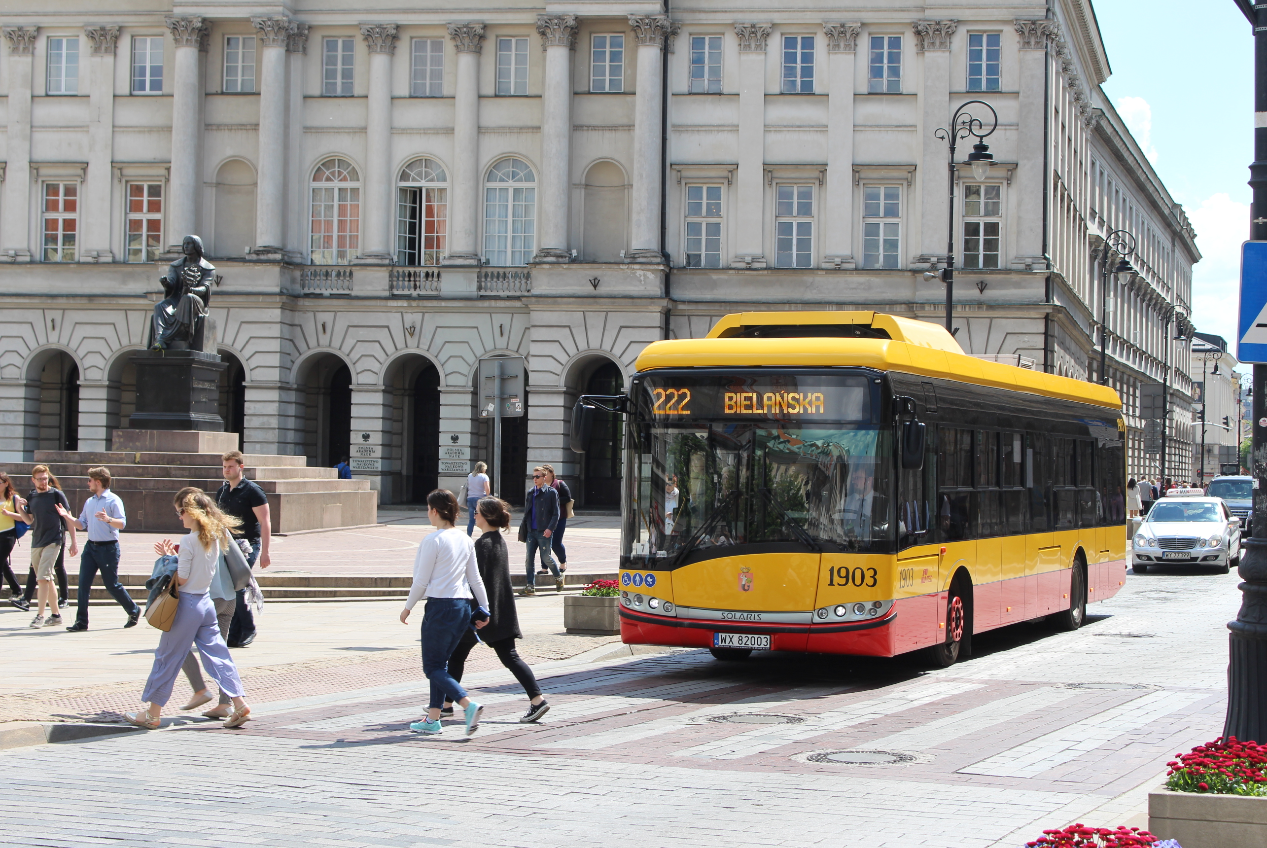Objectives and background
The City of Warsaw together with other members of Warsaw Metropolis Association identified the unification of public transport as a key challenge. Meetings of the Association have consistently highlighted transportation as the top priority for metropolitan cooperation. However, the absence of legal and financial solutions has hampered progress toward a unified system. Therefore, Warsaw and the Association are working on the Metropolitan Act, which should deliver effective solutions for the metropolitan transportation.
The pilot action includes “Analysis of the Possibilities of Integrating Bus Transport in the Warsaw Metropolis” that conducted a comprehensive inventory of the bus transport services and required actions for their integration. This analysis is foundational for legislative and planning work for the proposal of the Metropolitan Act.
Importance of integration
Public transportation in the Warsaw Metropolitan Area (WMA), which encompasses 79 local government units, is currently fragmented, with various entities managing bus services. The pilot action emphasizes creating a cohesive network where passengers can travel seamlessly using a unified fare system. Real-time information through a centralized database is also a priority.
Statistics underscore the critical need for integration:
- 34 inter-municipal agreements on bus and rail transport have been established with Warsaw.
- Around 2.7 million people live in the communes covered by the agreements – 85 % of the total metropolitan population.
- In 2023, 955.8 million passengers used Warsaw Public Transport.
- Annual expenditures on public transport run into billions of PLN and are a major burden for local government budgets.
Analysis highlights
The analysis focused on the integration of information and tariffs, covering the whole WMA. Key findings include:
- Inventory part: A detailed inventory of bus lines, operators, depots, routes, technical facilities, and timetables. It identified problems and mapped the area’s transport characteristics.
- Planning part: Organizational, technical, and IT measures required for effective integration, including a unified fare system and a centralized passenger information database.
Metropolitan cooperation
The pilot action fosters metropolitan cooperation by uniting municipalities, organizers of public transport, operators and other stakeholders to improve transport efficiency and sustainability. It creates a platform for dialogue among municipal governments with fragmented transport policies, promoting shared responsibility and ensuring all stakeholders contribute to and benefit from enhanced mobility across the WMA.
Innovativeness and outcomes
The pilot action represents the first comprehensive analysis of bus transport across such a large area. It outlines a strategic plan for integrating bus transport and aligns the system with the “Sustainable Urban Mobility Plan for the Warsaw Metropolitan Area 2030+.” The proposed integration will:
- simplify travel with a single-ticket system.
- enhance passenger experience through real-time information.
- promote sustainable urban development by reducing reliance on private cars.
Drawing on the Stuttgart’s integration of spatial and transport planning and the Berlin-Brandenburg’s coordinated ticketing system, Warsaw gained valuable insights. A study visit to Stuttgart in February 2024 and online discussions helped refine the pilot action, ensuring its alignment with WMA’s unique challenges.
Conclusion
The “Possibilities of Integrating Bus Transport in the Warsaw Metropolis” pilot action successfully achieved its objectives, providing a blueprint for establishment of a fully integrated metropolitan transport network. It underscores the importance of integrated systems in improving mobility, efficiency, and sustainability, offering a model for other regions facing similar challenges. The outcomes align with the WMA’s strategic goals and are one of several key steps toward continued progress in metropolitan governance. More information about the pilot action can be found here.
